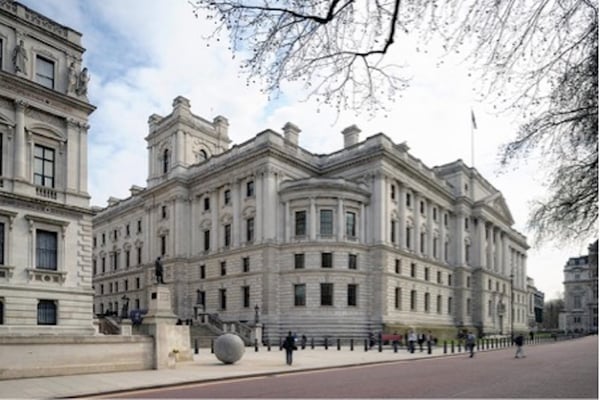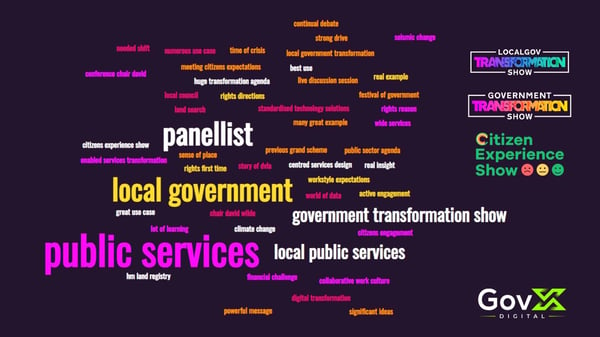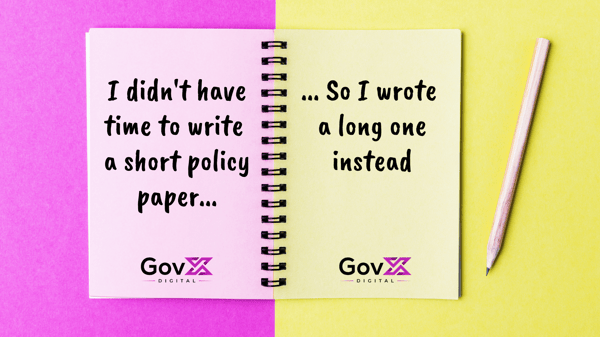Opinion: New Civil Service hires an opportunity for transformation
Government Transformation’s General Manager, David Wilde, reflects on the reasons and opportunities behind the current batch of Senior Civil Service vacancies.
There are a number of high-profile digital roles up for grabs in central government. GDS recently published adverts for a new Chief Product and Technology Officer along with a Deputy Director Engineering. The Rosa Service Organisation (RSO), part of the Foreign, Commonwealth and Development Office, is recruiting a Head to lead its highly sensitive IT system controlling the access to top secret documents. Last but not least, the sought after role of Government Chief Digital Officer (GCDO), the most senior technology role within the UK government, is once again in need of filling.
The new GCDO will have quite an in tray: "responsible for shaping and delivering HMG’s digital, data and technology transformation to deliver better services (and ultimately outcomes) for UK citizens, for improving data-driven decision-making across government, and for managing technology related risks," according to the job spec.
The scope of this transformation includes digitising end-to-end services, overhauling legacy IT systems, establishing cross-government enterprise architecture, updating the approach to data and analytics, strengthening cyber security, and upgrading DDaT talent and skills - while directly managing a team of 200 specialists in the Central Digital and Data Office (CDDO), and acting as the professional head of the Government’s 20,000-strong DDaT community.
A sign of things to come
Why are there so many senior technology roles being advertised now? In reality, nothing unusual is happening here - and these open roles can be explained by a number of factors.
Firstly, and the most obvious one, is Covid-19. The pandemic inevitably delayed recruitment and pushed many to postpone their retirement while the country dealt with this unprecedented national emergency. This, in turn, created a situation where interim positions proliferated over the last couple of years, including the role of Government CDO, which was deliberately kept interim while GDS went through a reset.
Secondly, there is greater stability in Whitehall now that the Brexit dust has settled, allowing government departments to spend more time on operational matters.
Lastly, this is just one of the recruitment waves we should be expecting this year as part of the Westminster natural cycle. After the ‘Whitehall wave’, it is likely that another hiring influx in local government will come in the summer following the May local elections. Similarly, an autumn churn of senior tech executives, including CIOs and direct reports, may come in healthcare as the NHS comes out of emergency mode and the integrated care systems come to fruition.
The new central government CIOs
Something we can deduce from these roles and the skills required is that both Whitehall and the Government are heavily investing in data and analytics, following on from last year's Declaration on Government Reform.
Covid-19 has taught the Government a very tough lesson about how having the right data and analytics capabilities can make your job easier - and how not having it, won’t.
Cyber, although still niche, is essential to central government to strengthen the UK’s cyber capabilities - something demonstrated through the huge investment in NCSC and the opening of its new offices in the North West. This signals how the Government is getting much more actively involved in the recruitment of talent in the cybersecurity arena.
We are also seeing greater understanding about the importance of keeping citizens in mind when designing, transforming and delivering public services. DWP and HMRC are continuing to grow and develop their technical capabilities and are looking for senior leadership that can help the Government with the ‘Amazonification’ of services’ user experience (while avoiding replicating its supply chain). They are also drawing inspiration from banking on how these services can be more customer-centred.
CIO roles are now being regarded as strategic posts having a much more active engagement with the senior leadership. What is interesting to see is that the GCDO is now a SCS Grade 3 role, rather than SCS Grade 5 as was the case in the past. This is a step up that will be appealing for many, raising the pay grade to £190,000 per annum.
Although there is a continuous challenge within recruitment, there is great opportunity here to recruit the right people for the right reasons. The salaries offered might not be tempting for those coming from the corporate world - but do you really want to attract that talent? The Civil Service already has a great and highly talented pool of talent available, so it may be worth it looking within.
The ultimate proposition for these roles should be about wanting to contribute to the public service and improving citizens’ services, something that has gained renewed respect as a result of the pandemic. There is a greater interest in being part of the public service story and those coming forward for these jobs should be able to reflect that.






